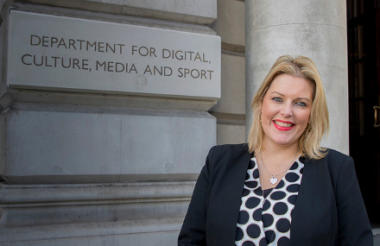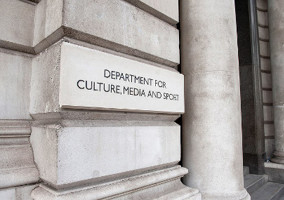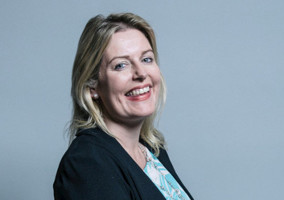Just four months into the job, the civil society minister Mims Davies is keen to set out her vision for how the Civil Society Strategy should be implemented and the role she hopes charities and other civil society strategy organisations play in the future.
She has taken over at an odd time for both politics and the charity sector. Her predecessor, Tracey Crouch, resigned in November last year over government plans to delay a clampdown on fixed odds betting terminals, just a few weeks after launching the Civil Society Strategy. Many were left wondering if the document would now be left to gather dust.
The strategy is six months old this week and Davies has set out the four areas she wishes to prioritise. However, she is also keen to demonstrate her wider commitment and enthusiasm for the sector.
Four priorities
When I spoke to her last week, she had just held a round-table event with sector leaders to discuss the next steps for the strategy. “It’s been a labour of love to get the strategy together, but actually everybody was so pleased and positive,” she says.
She’s planning to hold a bigger conference to mark one year of the strategy, but until then has pulled out four areas to prioritise: youth opportunities, connecting communities, working with business, and using good and better finance. “I’ve also refined it because there is a huge amount in there,” she says.
Building connected communities is all about making sure people are “empowered to build that better society through both volunteering and charitable giving”. It sounds suspiciously like the “big society” initiative from the Cameron years, though the government has put some money where its mouth is with the launch of a £3m fund to address barriers to volunteering.
“Harnessing the energy of our young people” is another key priority for Davies, and something she says is understood right across government.
Brexit
During the referendum on Britain’s membership of the European Union, Davies campaigned to leave. Our interview took place in the week that MPs were voting on Theresa May’s deal, whether to take no-deal off the table and whether to seek an extension of Article 50.
“The reality is that it’s coming down the line,” she says. Her priority has been “making sure that our charities have a voice” in discussions.
The government recently published advice aimed at helping charities to make practical preparations for leaving the EU. “But there are also opportunities,” she says, pointing to the Shared Prosperity Fund, which “can be transformational for our communities”.
A House of Commons library briefing document on the fund was published last week, though there is still no indication of when the government plans to launch a full consultation on the fund’s shape and scope.
Charity Commission
The Charity Commission also has an ambitious new strategy, which will focus on improving the support it gives to charities while encouraging them to behave ethically. “That strategy and vision fits well with our Civil Society Strategy and that’s fantastic,” Davies says.
But concerns linger over whether the Commission has the resources it needs. The regulator has for some time been pushing for permission to help fund its work by placing a mandatory levy on charities. However, its chief executive Helen Stephenson recently said she was not expecting the government to bring forward a consultation on the regulator’s funding in the short term.
Davies agrees that it is vital for the Commission to be adequately resourced, especially as the sector is growing. “When we’ve seen challenges in our communities, you see a lot of people setting up giving pages,” she says. “But the practicalities of [there being] more people who care mean that the Charity Commission has to spread its resources thinner than it would like.”
On the Commission’s funding, she says: “We are due to start looking at that more widely and have a consultation at some point. There are various things we need to crack on with. It’s a bit of a crowded space at the moment but I don’t think charity issue should be forgotten.”
Safeguarding
As for safeguarding, Davies is clearly concerned about getting it right and helping trustees and volunteers to “understand their rights and responsibilities”. She also believes that ensuring people are better supported in the sector will encourage more people to become trustees.
She says she wants people to feel able to call out any bad behaviour at charities. “There was an issue in my own constituency around DBS checks and safeguarding so I’ve had the experience of when things are of concern and you need to step in.”
She adds that there must not be a “walk on by mentality simply because it’s a charity and it’s [considered] sacrosanct”.
Davies is also supportive of a ten-minute rule bill brought by the Labour MP Susan Elan Jones to place trusteeship on the same footing as school governorship by enabling people to take time off work to fulfil their duties. “I think it’s something we should look at,” she says. She has promised to meet with Elan Jones to discuss it further and is also planning to attend an upcoming all-party parliamentary group meeting to hear more.
Affinity with the sector
Davies’ enthusiasm for the sector is evident. “Volunteers are my favourite people,” she declares. “They are fabulous and they are always happy and positive.”
She was previously a trustee of a small military charity, Building Heroes, but the Cabinet Office advised her to step back from that role. “I can’t do that anymore more because of my broader role,” she says.
She entered parliament in 2015 and before that was a local councillor. In that role she set up a marathon event to raise money for local charities.
A varied portfolio
The Office for Civil Society was moved from the Cabinet Office to the Department for Digital, Culture, Media & Sport in 2016, and when Crouch took on the role of minister for civil society the following year it was combined with her existing sports brief. Together these decisions have prompted concern among charities that the sector is not seen as a priority.
Davies says she understands where the concerns come from, but feels that the breadth of her portfolio, which includes sport, charities, lotteries and loneliness, among other things, actually benefits the sector. There’s a “correlation” between the different parts of the brief, she says, adding that DCMS is well-placed to do a lot of the cross-government work needed.
“I’m not sure about charities being siloed singularly off,” she says. “They don’t work that way themselves so I think it’s actually positive for us to have a very broad view about how charities work.”
Lobbying
Charities have been increasingly concerned in recent years about their abiity to speak out on government policy. The Lobbying Act and the introduction of anti-advocacy clauses into government contracts have both been seen as an attempt to silence criticism from the sector.
Davies, unprompted, is emphatic that she and her colleagues wants to hear from charities, who are often experts in particular areas. “One of the messages this morning was very much about listening,” she says. “I feel very clear that making sure charities have a voice across government is absolutely vital.”
Her overarching message to the sector is that she cares, and that she gets what it’s about. “I’m really proud to do this role and I can promise the sector that I will never let them feel unloved.”
|
Related articles











